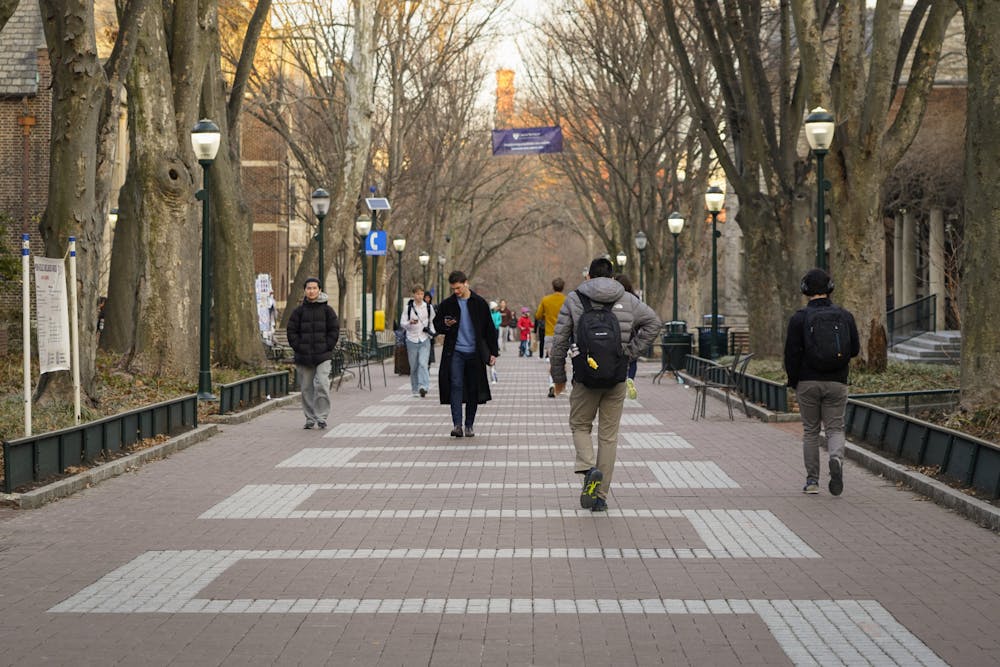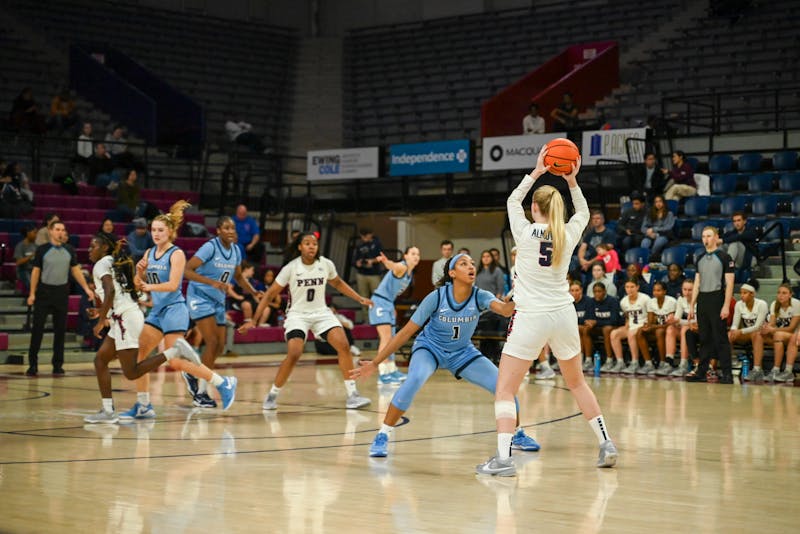
Penn administrators issued guidance to the University community following federal immigration policy changes in a March 18 email.
Credit: Grace ChenPenn issued guidance about potential travel bans, on-campus Immigration and Customs Enforcement activity, and visa revocations in an email to the University community on Tuesday.
The March 18 message from Provost John Jackson Jr. and Vice Provost for Global Initiatives Ezekiel Emanuel reaffirmed Penn’s commitment to supporting international students, scholars, faculty, and staff amid evolving immigration policies. The email issued recommendations to impacted individuals that included avoiding non-essential travel and seeking guidance from campus and legal resources, among other actions.
“We know that recent policy changes and actions related to immigration, visas, and travel are causing uncertainty and anxiety for many members of the Penn community,” the email read. “We are taking action to offer direct support to impacted community members, plan for disruptions caused by potential policy changes, and provide information to ensure that we can continue to support students, scholars, and others.”
Since the start of his second term, 1968 Wharton graduate and President Donald Trump has enacted a litany of executive orders and federal actions that have affected higher education institutions across the country — including Penn. A recent federal proposal considered a new travel ban that would impose visa restrictions on citizens of 41 countries, according to an internal memo.
In the recent email, Penn’s senior administrators wrote that citizens of countries included in the travel ban would face disruptions, including delays and restrictions in acquiring visas and being “barred from entering the United States” altogether.
They also reiterated advice from a March 6 email from International Student and Scholar Services that advised students from several countries to avoid “non-essential” travel ahead of the potential new federal travel ban. Tuesday’s message added that students, staff, and faculty should “be aware that policies are changing quickly and consider carefully whether to travel abroad for the foreseeable future.”
The message also advised students to contact their ISSS advisor and program directors of the schools they are enrolled in for guidance on traveling.
“We are asking deans and faculty members to consider waivers or alternative accommodations for students for whom international travel is a mandatory or key component of their academic program,” the email read.
Penn will also offer short consultation appointments with immigration attorneys, letters of attendance or employment, and information sessions on summer planning for University community members in addition to existing resources, according to the email.
The email also addressed a Jan. 29 executive order that directed federal agencies to identify and deport non-citizen participants in pro-Palestinian protests — including college students. While the administrators noted that Penn “remains unclear who may be directly impacted,” they advised community members to have at least one emergency contact in the United States amid ongoing federal actions.
The email emphasized that despite Penn’s “largely open” campus, law enforcement officers must have “judicial warrants or subpoenas” to access buildings. The email advised members of the community who are “approached by Immigration and Customs Enforcement or other law enforcement agents” to contact the Division of Public Safety “immediately.”
“You may document any interaction, or ask them to wait for Penn Police, but do not interfere with or obstruct the agents,” the email read. “Let them know that you cannot grant them permission to enter University buildings or accept service of a warrant on behalf of the University.”
In January, Trump announced the reversal of a policy that previously declared “sensitive locations” such as schools, churches, hospitals, colleges, funerals, and rallies off-limits to ICE raids. Last week, at Columbia University, ICE agents detained 2024 Columbia graduate Mahmoud Khalil, a pro-Palestinian activist and lead negotiator for Columbia’s Gaza Solidarity Encampment. His detention has prompted nationwide protests, including multiple in Philadelphia over the past week.
“As the situation evolves, we will continue to ensure that our community is informed and supported to care for each other,” the email concluded.
The Daily Pennsylvanian is an independent, student-run newspaper. Please consider making a donation to support the coverage that shapes the University. Your generosity ensures a future of strong journalism at Penn.
Donate












